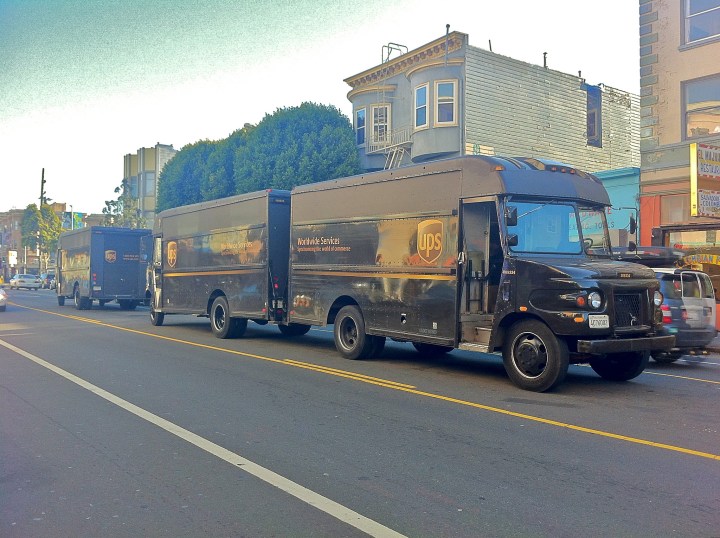
There are few things more frustrating than ordering something only to have someone swipe the package from your front door before you even have the chance to open it. Package theft is more common than one might think, and UPS is working on a solution. The parcel delivery company partnered with smart lock startup Latch to create an Amazon Key-like service that allows drivers to leave packages inside your building. The companies recently announced the program is expanding to 10 more cities.
According to UPS, the Latch service will be available in Atlanta, Chicago, Los Angeles, Houston, Dallas, Philadelphia, Boston, Miami, Seattle, and Washington, DC by the summer of 2019. The service is already operating to safely deliver packages in New York City and San Francisco.
“By expanding into these high density areas, more residents can benefit,” Jerome Roberts, UPS vice president of global product innovation, said in a statement. “Smart access devices enable our drivers to enter buildings without keys and leave packages safely in lobbies or building package rooms. Customers who have used the service say it’s safe and easy for them. For UPS, this innovation adds efficiency to our operation by ensuring our drivers make more deliveries on the first attempt.”
Latch works by placing a smart lock on the main entrance of buildings like apartment complexes. Residents of the building can interact with the lock from their smartphone and can create temporary credentials that allow non-residents to enter the building. Activity can be monitored from a built-in wide-angle camera on the lock. UPS said it is only working with Latch to enter share spaces and common areas and won’t enter a person’s individual apartment to make deliveries — a noteworthy difference from Amazon Key, which can be used to allow delivery drivers inside your home.
With the prevalence of package theft, services the partnership between UPS and Latch can provide some peace of mind. Xfinity Home estimates that about 30 percent of Americans will have a package stolen at some point. If services like these manage to mitigate that risk without allowing a stranger into your personal space to make the delivery, it seems like a solid outcome.


